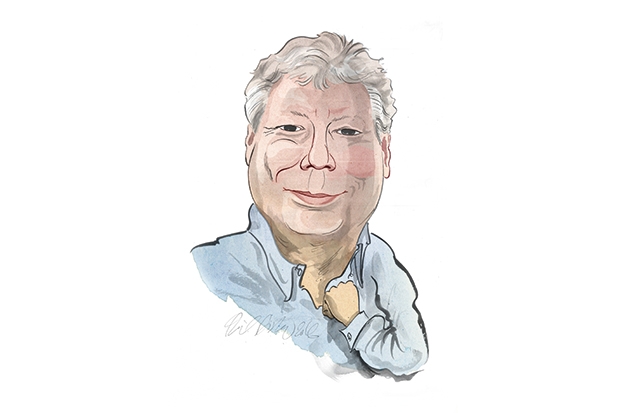‘For ten years or so, my name was “that jerk”,’ says Professor Richard Thaler, president of the American Economics Association and principal architect of the behavioural economics movement. ‘But that was a promotion. Before, I was “Who’s he?”’
Thaler has had to get used to putting noses out of joint. His academic research, initially controversial, sparked an entirely new branch of economics, and now governments are adopting his theories across the globe. But he met plenty of resistance along the way. ‘You get your ideas straight when you argue with those whose views are most different from yours,’ he says.
Struggling with his doctorate in the early 1970s, Thaler faced an economics discipline focused on mathematical models that assumed people always behave rationally, driven entirely by market incentives. He fought back, insisting economics should resist too much maths, opening up instead to other social sciences and acknowledging emotion, bias and whim.
‘It’s tough to change people’s minds about their breakfast cereal, let alone economic models they’ve worked on all their lives,’ says Thaler, reflecting on an career that’s taken him from undergraduate studies in Ohio to Stanford and Cornell. For the past 20 years, he’s been at Chicago — once the home of Milton Friedman, still a citadel of free market economics, and a department perhaps unlikely to welcome a cross-disciplinary firecracker like Thaler. ‘I went with my eyes open, and it’s been great,’ he says. ‘What I’ve learnt at Chicago and elsewhere is that adding real people to economic theories isn’t only fun, it also improves the accuracy of your predictions.’
This is behavioural economics — a branch of the subject Thaler now dominates. Unusually for an economist, he and his acolytes openly admit that market-based analysis is flawed. Embracing that reality, the behavioural school combines a practical understanding of financial incentives with concrete findings from psychology — and is thereby revolutionising the dismal science.
In 2008, Thaler co-authored Nudge: Improving Decisions About Health, Wealth, and Happiness, which highlights how individuals and organisations often make terrible choices — about everything from education to road safety to personal finance. Thaler’s response is ‘soft paternalism’, policies that work with human nature, nudging people towards acting in their own best interests.
An international bestseller, Nudge brought Thaler policy influence, particularly in the UK. After the Tories took office in 2010, he helped set up and run the fabled Behavioural Insights Team in Downing Street (the ‘Nudge Unit’), which continues to play a significant role in British policy-making.
Since 2012, many UK employees have been automatically enrolled into occupational pensions — a policy, lifted from Nudge, that recognises inertia. Opt-out rates have been small, yielding 90 per cent take-up. The UK tax authorities have also adopted Thaler’s policy, road-tested using psychological experiments, of rewriting letters to late payers to tell them they’re ‘in a small minority who haven’t paid on time’. The changed wording brought in almost 10 per cent more payments.
Thaler tells me proudly of the Nudge Unit’s growth: having started with just five staff, it now has over 100 and is partly privatised, doing work in Singapore, Australia and elsewhere. The White House now has a Nudge Unit, he adds, while the Bill and Melinda Gates Foundation is funding one in India to promote better sanitation.
Is ‘soft paternalism’ realistic, though? Won’t political myopia always prevail? After pension auto-enrolment, the Treasury scrapped requirements to convert pension pots into annuities, allowing retirees to blow the lot. While boosting consumer spending now and bringing forward future tax receipts, doesn’t that undermine better pension provision? ‘That’s something George Osborne pushed,’ says Thaler. ‘Had he asked my advice, which he didn’t, I’d have said let’s not do this.’
Above all, Thaler wants to nudge consumers towards better decisions using better data. ‘We need what I call “choice engines”, where you go online, enter your national insurance number and get a list of everything you own and are entitled to in terms of pensions, mortgages and so on,’ he says.
Thaler homes in on the UK’s notoriously opaque consumer energy market. ‘There’s no reason it can’t be competitive — if firms were compelled to make all information available, in an intelligible, comparable form.’ Should the government set up these choice engines? ‘No — Expedia competes with Travelocity on airline tickets and it should be the same for energy and everything else’.
Won’t we need regulation of the choice engines, though, to guard against kickbacks? ‘Some,’ says Thaler, ‘but the market will also self-regulate through reputation.’ He sounds like a Chicago economist after all, I suggest. ‘Well, you spend 20 years at a place — call me Milty,’ Thaler replies, laughing.
Thaler’s latest book, Misbehaving: the Making of Behavioural Economics, is now out in paperback. Part intellectual history, part novelised memoir, it’s packed with thoughtful and often funny writing, as the author tells of his struggle to bring academic economics back down to earth.
As our conversation ends, I ask Thaler if the economic profession remains too remote and distrusted. ‘We have a long way to go,’ he concedes. ‘I’m happy, though, many of the best and brightest young economists are very open to behavioural ideas’.
What did he think of the Oscar-winning documentary Inside Job, which revealed huge payments from investment banks to academic economists who’d written papers ahead of the 2008 financial collapse backing less regulation and ultimately disastrous securitisation policies? The film ‘had an attitude’, Thaler says, ‘but served a purpose’ and the American Economics Association now has disclosure policies. ‘We were late to the game, but that stuff won’t happen again — at least not often’.
On Europe, Thaler says the UK should stay in the EU: ‘Divorces are always less amicable than you expect.’ He rails, though, against the single currency. ‘It was a lousy idea and Britain was smart not to join,’ he says. ‘The idea you could trust some of the other governments involved to keep accurate fiscal accounts was always a bit preposterous. I mean — Berlusconi?’






Comments